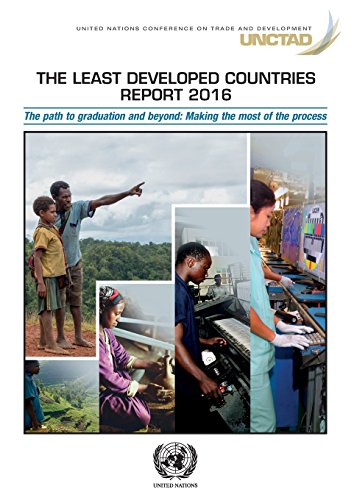The Least Developed Countries Report 2016: The Path to Graduation and Beyond: Making the most of the process

Buy online ($)
Type
Book
Authors
ISBN 13
9789211129052
Category
United Nations Reference
[ Browse Items ]
Publication Year
2017
Publisher
Pages
216
Tags
Description
Graduation is the process through which least developed countries (LDCs) cease to be members of the LDC category, in recognition of their advances in development. In principle, it marks a shift from dependency to a greater degree of self-sufficiency and emergence from the development "traps" which beset LDCs. However, the loss of access to international support measures (ISMs) tied to LDC status at graduation can give rise to important economic costs, including an estimated 3–4 per cent of export revenues in the case of trade preferences. During the 45 years since the establishment of the LDC category, only four countries have graduated from LDC status; and the Report's projections indicate that the target of half of the LDCs graduating by 2020 is unlikely to be met. This partly reflects the inadequacy of the existing ISMs. The projections also suggest a fundamental shift in the composition of the group, which by 2025 will consist almost entirely of African countries and include only one small-island economy. The Report argues that graduation should be viewed as part of a longer and broader development process, and emphasizes the need for "graduation with momentum" - an approach which goes beyond fulfilment of the statistical criteria for graduation to lay the foundations for future development. This means prioritizing structural transformation of the economy, development of productive capacities, upgrading technology and raising productivity. The Report highlights several policy areas essential to achieve "graduation with momentum" - rural transformation, industrial policy, science, technology and innovation policy, finance and macroeconomic policy, employment generation and women's empowerment. It calls on the international community to contribute by fulfilling their commitments in areas such as aid and technology. It also suggests possible revisions to the graduation criteria to reflect more appropriately issues such as structural transformation, environmental sustainability and gender equality. - from Amzon
Number of Copies
1
| Library | Accession No | Call No | Copy No | Edition | Location | Availability |
|---|---|---|---|---|---|---|
| Main | 1222 | 1 | Yes |



